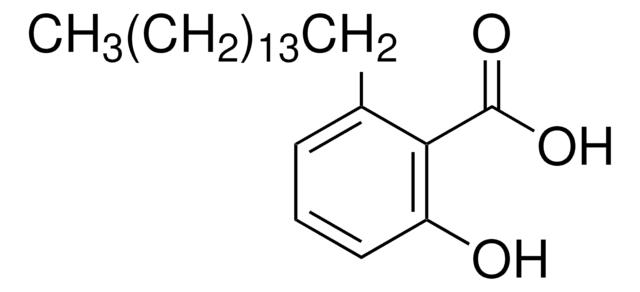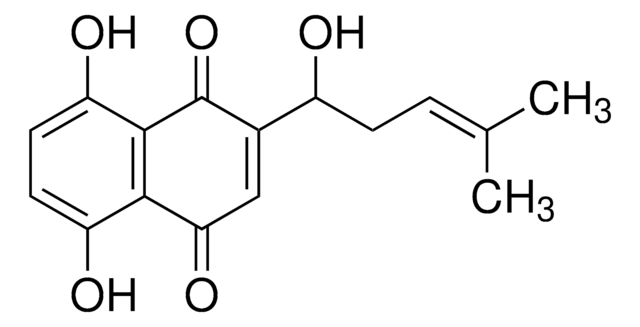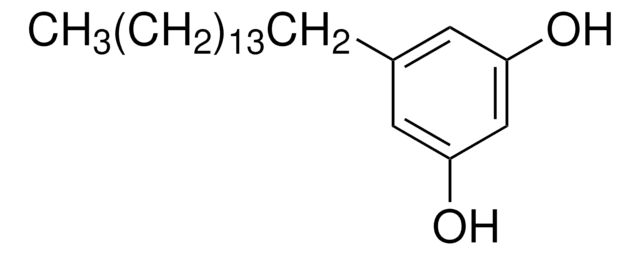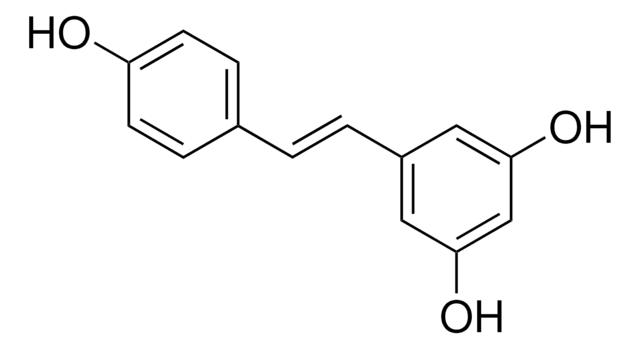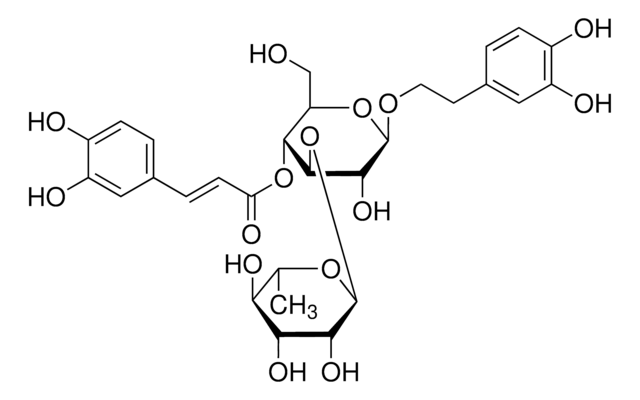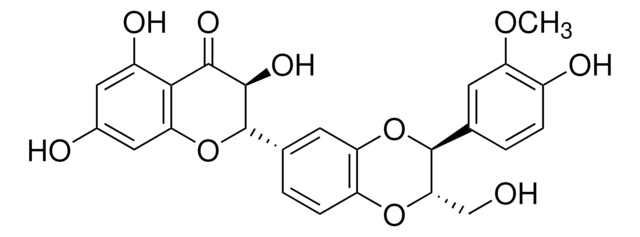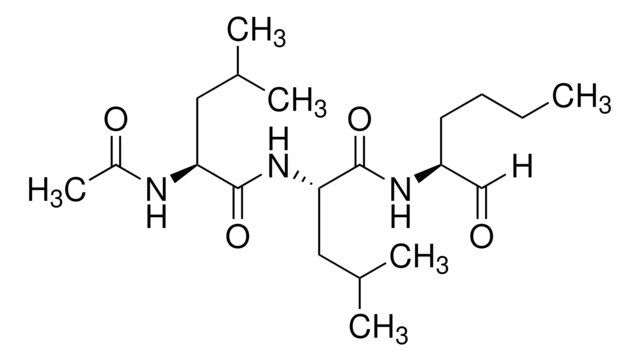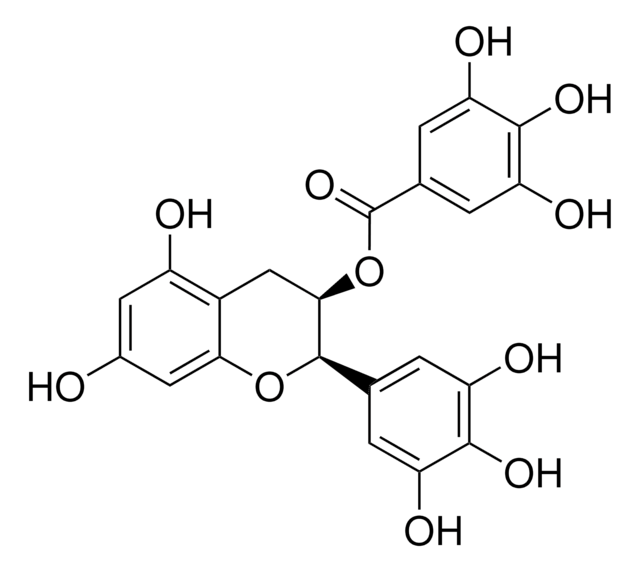172050
Anacardic Acid
The Anacardic Acid, also referenced under CAS 16611-84-0, modulates the biological activity of Anacardic. This small molecule/inhibitor is primarily used for Cell Structure applications.
Synonym(s):
Anacardic Acid, AA, 2-Hydroxy-6-pentadecylbenzoic Acid, 6-Pentadecylsalicylic Acid, Aurora Kinase A Activator, Histone Acetyltransferase Inhibitor III, SUMOylation Inhibitor II, HAT Inhibitor III, p300/CBP Inhibitor III, PCAF Inhibitor I
About This Item
Recommended Products
Quality Level
Assay
≥95% (HPLC)
form
solid
manufacturer/tradename
Calbiochem®
storage condition
OK to freeze
protect from light
color
white
solubility
DMSO: 10 mg/mL
ethanol: 10 mg/mL
methanol: 10 mg/mL
shipped in
ambient
storage temp.
2-8°C
InChI
1S/C22H36O3/c1-2-3-4-5-6-7-8-9-10-11-12-13-14-16-19-17-15-18-20(23)21(19)22(24)25/h15,17-18,23H,2-14,16H2,1H3,(H,24,25)
InChI key
ADFWQBGTDJIESE-UHFFFAOYSA-N
General description
Biochem/physiol Actions
HAT
Packaging
Warning
Reconstitution
Other Notes
Kishore, A.H. 2008. J. Med. Chem.51, 792.
Balasubramanyam, K., et al. 2003. J. Biol. Chem.278, 19134.
Paramashivappa, R., et al. 2002. J. Agric. Food Chem.50, 7709.
Legal Information
Storage Class Code
11 - Combustible Solids
WGK
WGK 3
Certificates of Analysis (COA)
Search for Certificates of Analysis (COA) by entering the products Lot/Batch Number. Lot and Batch Numbers can be found on a product’s label following the words ‘Lot’ or ‘Batch’.
Already Own This Product?
Find documentation for the products that you have recently purchased in the Document Library.
Our team of scientists has experience in all areas of research including Life Science, Material Science, Chemical Synthesis, Chromatography, Analytical and many others.
Contact Technical Service